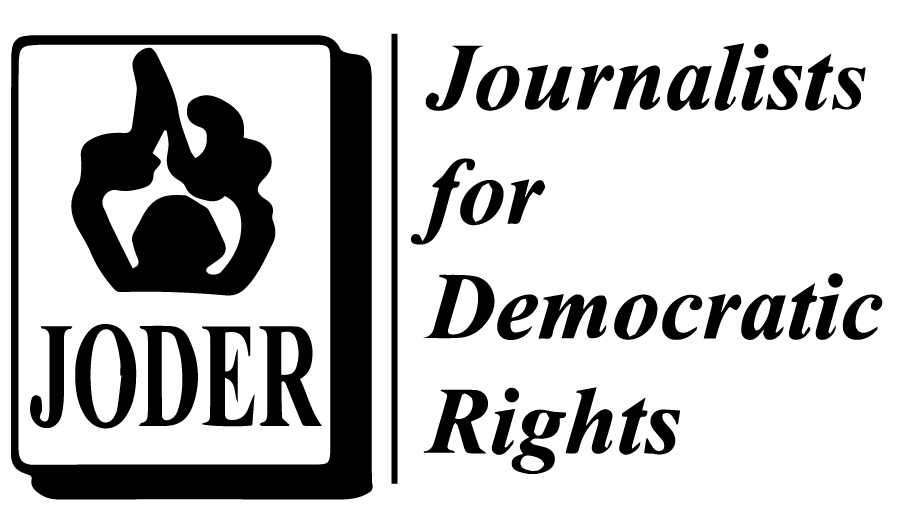Press Statement
March 25, 2016
A notable rights group has embarked on a nation-wide campaign to stem age-long differences often fueled by ethnic, cultural and religious disputes in Nigeria. The project is aimed at preventing further violence and blood-letting apart from deepening democratic culture in a country of over 250 ethnic groups whose over 100 years of nation-building is dotted by unending conflict and a bloody civil war.
In a statement on Monday, the Journalists for Democratic Rights, (JODER) established in 1996 said the programme involves a nation-wide constructive engagement with ethnic associations, community-based groups, the media and other stakeholders who will undergo training and skill acquisition on peace-building and conflict management. It also involves a series of actions like advocacy visits, campaigns and interactive and expert-on-conflict meetings. The project which is being supported by the Ford Foundation West African Regional Office will hold in the six geo-political zones of the country with local groups as the drivers. The project also involves training of journalists on conflict reporting.
The group observed that in Nigeria, the seed of conflict is planted mostly during electioneering campaigns, but that the consequences of violence and ethnic conflict often come long after the elections have been held.
“The threat of violence in Nigeria is real and mainly derived from the country’s historic precedence. Though democratic elections are held every four years, we have seen that the impulsion for conflict remains. Nigerians on their own can take measures to create a platform of understanding and mutual trust. It is a task that can be achieved through a comprehensive programme of non-violence training of the critical stakeholders across the country,” JODER stated.
JODER said the strategic focus of the programme is to promote peace, democracy and stability in Nigeria through the media, socio-cultural groups and youth-driven organizations. “We’ll be working with local people and indigenous organizations for the success of the programme”, the statement signed by JODER’s Executive Director Mr Adewale Adeoye and the Asst. Programme Officer, Mr Obafemi Kasali stated.
The group stated that the recent conflict at Mile 12 which led to loss of lives could have been prevented by the people themselves if conflict resolution standards already existed.
The group said ethnic faith-induced violence are sour points that continue to pull Nigeria back from the tower of greatness, adding that every year, thousands of human lives, including women and children are lost in avoidable conflict traced to ethnicity and differences in values. ‘This situation can be brought under control by an action-driven by the people. Most of the times these conflict arise from lack of communication, stereotyping and complete ignorance of mechanism for conflict resolution. These are the challenges we intend to address.’
According to JODER ‘The project will deepen Nigeria’s fledgling democracy and strengthen peaceful co-existence among Nigeria’s sometimes fractious social formations. The workshop/training will also afford participants strategies for conflict resolution and series of other training and skill acquisition that will help the nation realize her dream of making peace and mutual trust and enduring monument. The group stated that the beneficiaries of the project are people who can make impact in their communities, youth groups and leaders whose voices are dominant in their territories.
According to JODER, the programme will expose locals to international instruments like Article 33 of the United Nations, (UN) Charter which states that ‘parties of any dispute, the continuance of which is likely to endanger the maintenance of peace and security, shall first of all seek a solution by negotiation, enquiry, mediation, conciliation, arbitration, judicial settlement, resort to regional agencies or arrangements, or to other peaceful means of their own choice.” The project will lead to a process where stakeholders across the country will always use preventive diplomacy which when applied often lead to conflict prevention.
Adewale Adeoye
Executive Director
Obafemi Kasali
Asst. Programme Officer
site


